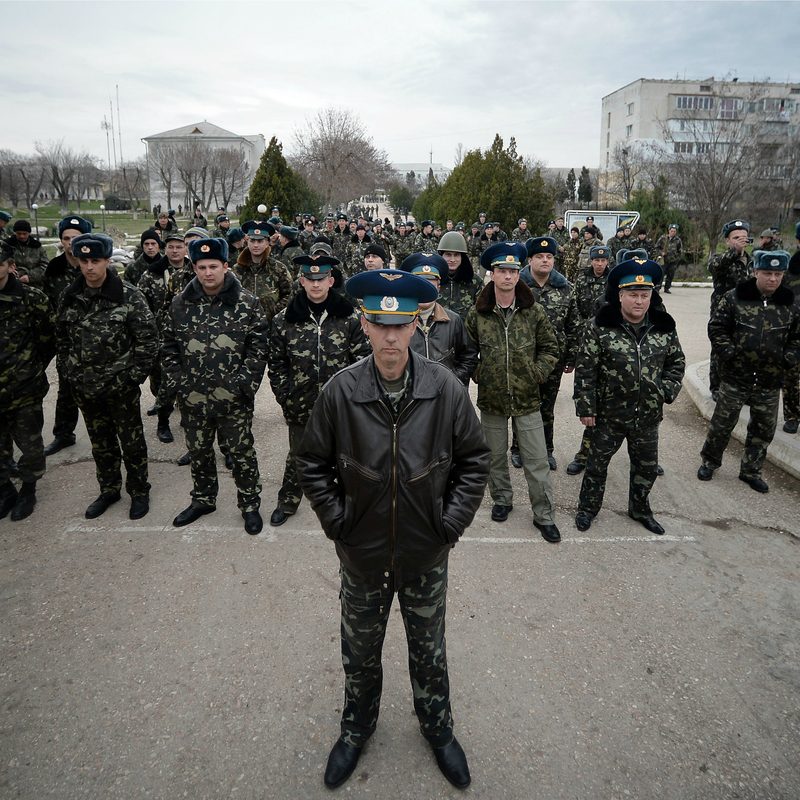BOB GARFIELD: This is On the Media, I’m Bob Garfield.
Over the weekend, about 30 men in unmarked fatigues and balaclavas broke into the office of the Crimean Center for Investigative Journalism, an independent news media hub in Simferopol, the region’s capital. Declaring the office a source of lies, they removed computers and files, this, the latest instance of escalating aggression towards journalists in Crimea and the rest of Ukraine. Among those alarmed by the escalating intimidation is Dunja Mijatović, Representative on Freedom of the Media for the Organization of Security and Cooperation in Europe or OSCE. A native Bosnian, Mijatović is all too familiar with the scenario, having witnessed such thuggery firsthand 20 years ago, amid the siege of Sarajevo. She described reaching Simferopol and feeling déjà vu.
DUNJA MIJATOVIĆ: The moment you land, you feel the tension. The situation is very similar, when it comes to the atmosphere of fear and also having a constant question mark in which direction Crimea will go. So maybe I’m doing this job in order to find out how it is possible to make people speak their mind without being intimidated and harassed constantly for just reporting on what’s happening in their society.
BOB GARFIELD: In the matter of free press, there’s one advantage, I guess, in Crimea that was not available to journalists in Sarajevo 20 years ago. They can shut down the presses and they can remove the computers, but they, they can’t turn off the internet.
DUNJA MIJATOVIĆ: Yeah, that’s the good one. [LAUGHS] I think we are in a bit better position. At least there is the possibility to send information even quicker and there is possibility for more voices.
BOB GARFIELD: If, in your investigations, you discover that the - this intimidation does have Russian fingerprints, that the troops who, who took over the Press Center were Russian soldiers, is there anything that the Organization for Security and Cooperation in Europe can actually do, besides raise its voice?
DUNJA MIJATOVIĆ: Well, I mean, there are many mechanisms that the OSCE has, and this is currently discussed in Vienna, during a Permanent Council that is meeting on a daily basis. And there was some news coming out when it comes to general political situation. My mandate is very focused, and it is related to media because, you know, you cannot talk about any security, if there is no free media. You cannot talk about respect human rights if there is no free media to report this. So for me, as an official of the OSCE, I’m also giving this message to all 57 participating states: Do not talk to me about security, if you do not let media speak freely.
BOB GARFIELD: You’re very kind to join us. Thank you so much.
DUNJA MIJATOVIĆ: Thank you very much.
BOB GARFIELD: Dunja Mijatović is representative on freedom of the media for the Organization for Security and Cooperation in Europe. She spoke to us from Kiev.

